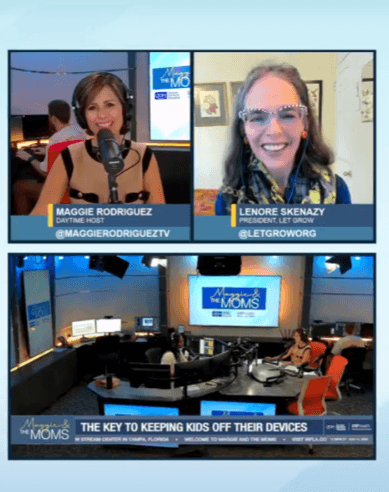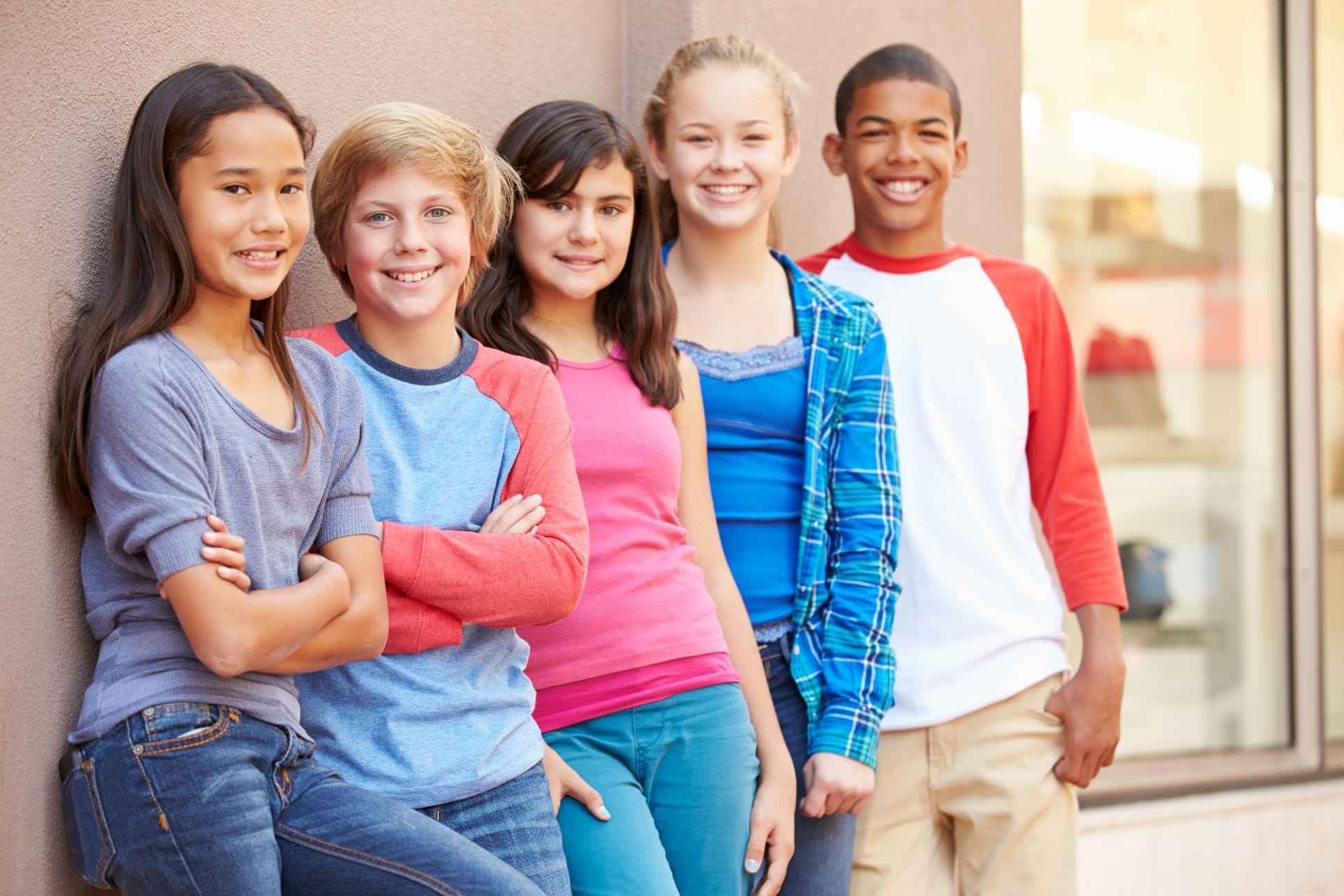What do Kids Want More than Phones? Independence!
Lenore Skenazy’s son was 9 when she allowed him to ride the New York City subway alone, and she was subsequently skewered for her parenting style. “America’s Worst Mom” responded with statistics and reason. Her bestseller, “Free-Range Kids,” marked the beginning of what has become a decades-long crusade to promote childhood independence.
Skenazy co-founded Let Grow with “The Anxious Generation” author Jonathan Haidt, and the two recently collaborated with a Harris Poll that asked children between the ages of 8 and 12 a question that confounds modern parents: How do I get my kids to disconnect from their phones? The surprising answer, as Skenazy shared on the Maggie and the Moms podcast, is that kids would prefer NOT to be on their phones.
Skenazy says that when kids were asked whether they would rather be online with their friends, in an organized activity like soccer or baseball or ballet or just hang out with friends in real life without parents, the overwhelming answer was the last choice. Kids just want to be just with their friends hanging out, having fun.
“They don't need trophies, they don't need tutus,” Skenazy says. “They don't need us. They really don't need us. Second choice was these organized activities. But third choice, trailing, was being online. Kids are addicted to their phones by default, not by desire. They don't have a choice because we're not letting them go outside.”

MR: It’s ironic that we parents allow our children to play unsupervised on their phones where they’re exposed to dangers and strangers and yet we can’t let them play unsupervised in the front lawn. Why?
LS: “Why” is a real distorted view of what would happen if we did open the door. An earlier Harris Poll showed that when we asked parents, ‘What do you think would happen if two 10-year-olds were playing unsupervised at the park?’ 50 percent of them — one out of two — thought that the kids were likely to be abducted. This is in another realm of delusion. Child abduction is more rare than lighting.
MR: Something that I have started to think differently about is instead of focusing on how dangerous it is to let them be out there alone, I think how dangerous it is to not let them be out there alone because we're depriving them of all the many benefits that come with that independence.
LS: It's absolutely true, and it's sad. There was a study … that found that over the decades, as kids' independence and free play and mobility (like to walk around the neighborhood) has been going down, … kids' anxiety and depression and self-harm and all sorts of terrible things have been going up. And it's not just correlation … it's causation, and you can understand it because when you are micromanaged every day, somebody watching over you, ‘No, did you try it this way? Oh, I would do this. Here, let me do this for you,’ it's terrible. Your intrinsic motivation is gone because somebody else is making you do things.
And that's become kids' lives, and when you don't have an internal locus of control, ‘I can handle things. Look what I did. I got lost and I found my way back home. My bicycle chain fell off and I got it back,’… all that stuff gives you this internal locus of control that you can handle things. But if there's an adult there always helping you, ‘Here, honey, let me do that for you,’ you are sort of over-assisted and under-underappreciated.
MR: A lot of parents, myself included, might say, “But [I’m not there when] they’re with their friends when I put them in Little League or dance class. Why is [unstructured] such an important distinction?
LS: Because an adult is running those things. We all want kids to follow their passions, so we give them soccer and ballet, which are great, but we're not letting them figure out anything besides soccer and ballet. I think some parents think, ‘Because my kids are in an activity they're not on a device,’ and they think they're doing them a service. It's not a disservice to give your kids some wonderful classes and some fantastic experiences, but you have to think of free time without a phone outside with friends as also a fantastic, developmentally-rich thing you can give your kids. And the kids have said now they want it … They want it more than anything.
Listen to the full conversation on the Maggie and the Moms podcast on all major podcast platforms.
Check out even more parenting advice and info from Maggie and the Moms.
Originally published in the October 2025 issue of Tampa Bay Parenting Magazine.


